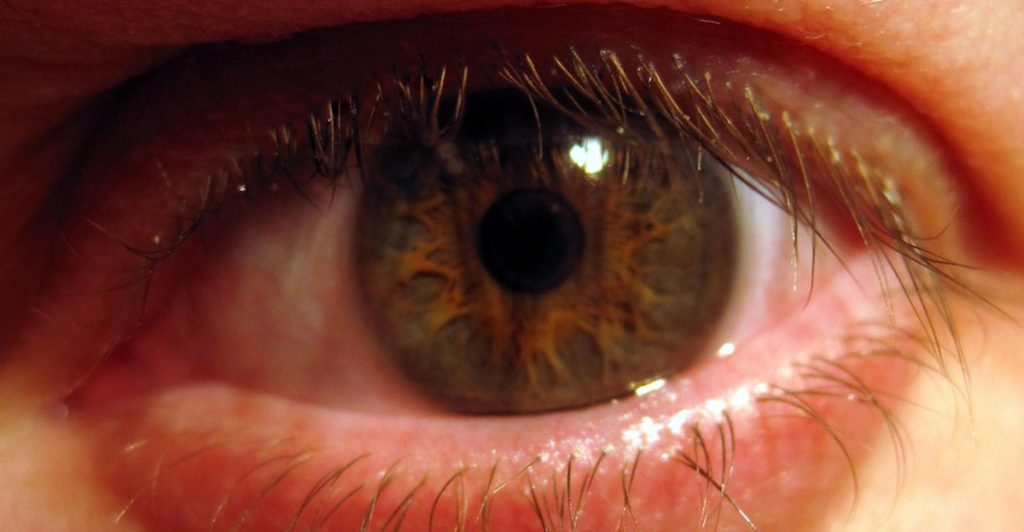Gently splashing your eyes with clean water several times, a day can help soothe irritation and wash away potential irritants. Remember to dab the eyes gently with a clean cloth to avoid unnecessary friction…writes Mukesh Batra
The humid climate during the monsoon months creates an ideal habitat for germs and viruses to spread conjunctivitis, commonly known as pink eye.
Against the backdrop of this upsurge in cases of conjunctivitis, the All India Institute of Medical Sciences (AIIMS) in Delhi is consistently recording around 100 patients daily.
In July, Maharashtra witnessed an astonishing surge of 87,761 conjunctivitis cases, marking one of the most significant and severe outbreaks observed in recent years.
Among the regions in Maharashtra, Buldhana stands out as the most heavily impacted, grappling with an alarming count of nearly 13,550 cases. This way, conjunctivitis cases have been on the rise, spreading swiftly and causing discomfort among the population across the regions of North and Western India. In this article, we explore the different types of conjunctivitis, the importance of prevention, and the role of Homeopathy in managing and alleviating its symptoms.
Understanding the types: Viral, Bacterial, and Allergic conjunctivitis
Conjunctivitis is often characterised by redness, itching, and discharge from the eyes, caused by various factors. The three primary types of conjunctivitis are viral, bacterial, and allergic. Among these, viral and allergic variants are particularly highly contagious in nature. Close contact, such as sharing towels or handkerchiefs within families, can lead to rapid transmission, making it easy for one infected family member to pass it on to others. Understanding these modes of transmission is essential in combating the spread of conjunctivitis. This ease of transmission highlights the need for personal hygiene and caution.
Prevention: A shield for your eyes
Preventing conjunctivitis is a responsibility that rests upon us all. Some crucial steps can help us make a significant difference in safeguarding our eyes and those of our loved ones. Here are some fundamental preventive measures:
Personal Hygiene: Adhering to a regimen of excellent hygiene through frequent handwashing, particularly before any contact with your face or eyes, is a simple yet effective measure to minimise the chances of conjunctivitis transmission significantly.
Resist the itch: In case of itchiness, resisting the urge to rub your eyes vigorously is essential. Such actions can further spread the infection and worsen the condition. Instead, gently dab your eyes with a clean cloth and dispose of it properly.
Facial hygiene: Gently splashing your eyes with clean water several times a day can help soothe irritation and wash away potential irritants. Remember to dab the eyes gently with a clean cloth to avoid unnecessary friction.
Proper tissue disposal: Proper disposal of used tissues and other materials is essential to prevent contamination and the potential spread of infection to others.
Understanding the risks and the need for treatment
Although conjunctivitis is generally self-limiting and often resolves on its own within a week, seeking timely treatment is paramount for several reasons. Firstly, treatment can provide relief from discomfort caused by symptoms like itching, pain, and discharge. Secondly, prompt treatment can prevent potential complications. Vigorous eye rubbing during conjunctivitis can lead to corneal abrasions, which may result in partial blindness if left untreated.
Homeopathy: A holistic approach to conjunctivitis management
As a natural and holistic system of medicine, Homeopathy offers effective remedies for managing conjunctivitis and promoting healing without side effects. While bacterial conjunctivitis might require antibiotic eye drops to combat the infection, viral and allergic conjunctivitis pose unique challenges that conventional eye drops struggle to address. To manage and alleviate symptoms of conjunctivitis, homeopathy plays a pivotal role.
Euphrasia: The most effective eye drop solution: One notable Homeopathic remedy is Euphrasia, often referred to as “Eye Bright” eye drops. Euphrasia is renowned for its ability to manage conjunctivitis and eye inflammation, providing much-needed relief to those affected.

Belladonna and Borax: Aid in faster healing: Two other readily available Homeopathic medicines are Belladonna and Borax. When taken orally in the early stages of conjunctivitis, Belladonna can help in speedy recovery and even potentially abort the infection. Meanwhile, Borax proves invaluable in cases characterised by thick discharge and the most uncomfortable sensation of eyes sticking together upon waking.
We should remember that while self-medication is common, it’s always wise to consult a qualified Homeopathic doctor before beginning any treatment regimen. By combining vigilance, education, and holistic care, we can embrace the monsoon season with clarity, comfort, and a renewed appreciation for the gift of sight.
ALSO READ-Mobile generation alert: Headphone overuse fuels health issues

Leave a Reply